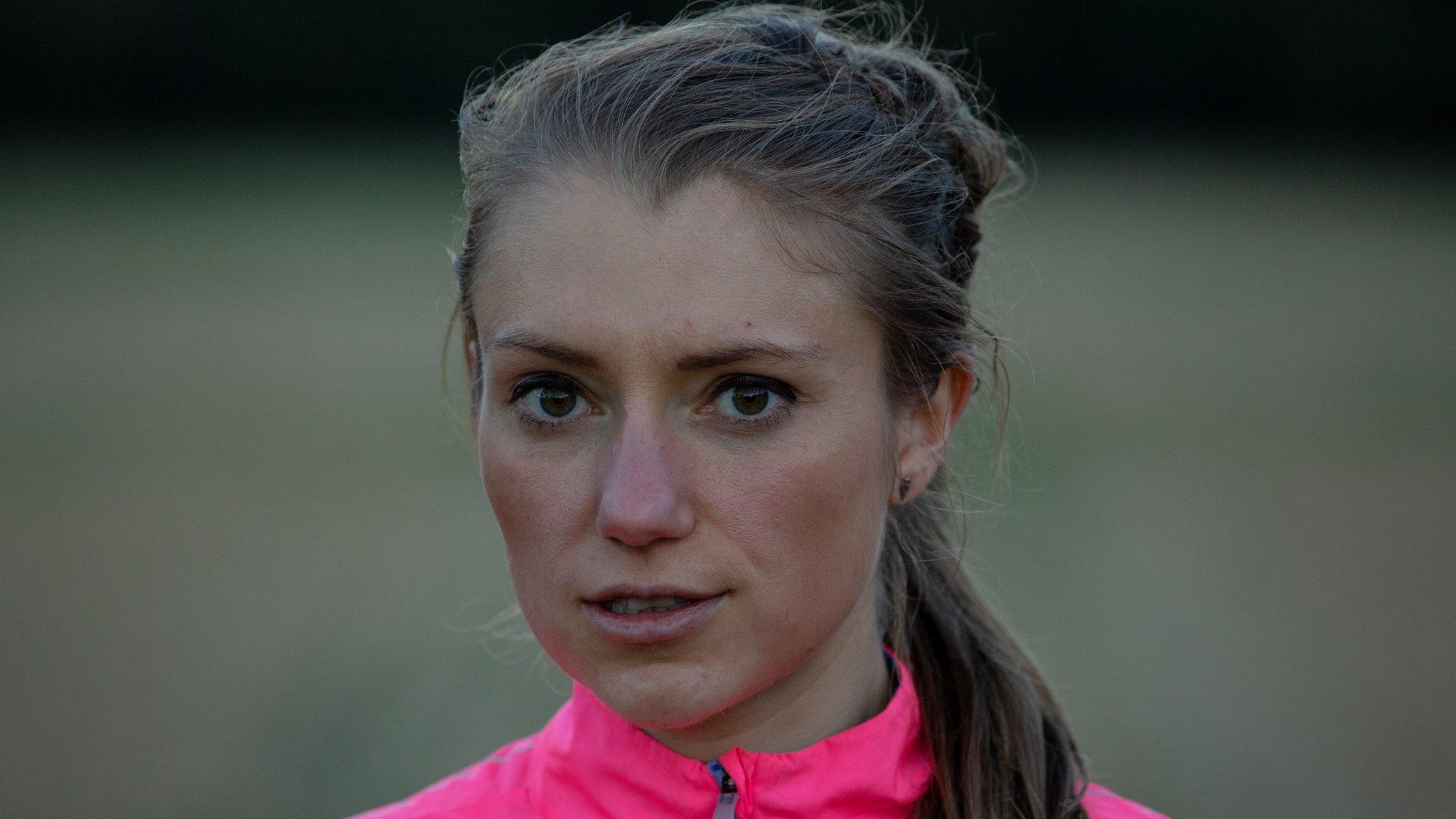Cardiff cyclist's eating disorder warning
- Published
Oscar Mingay began to lose weight as a 15 year old
A Wales Academy cyclist, who is managing an eating disorder while training, has warned about the dangers of body image in the sport.
Oscar Mingay, 19, from Cardiff spoke of coaches and parents "pinching" riders, calling them "thunder-thighs" or "chunky" when racing abroad, unaware of the impact it can have.
He said he would not eat for a day and ride for hours just to lose weight.
"I saw myself as a weight, not as Oscar," he said.
Oscar, who rides for Wales at U23 level with the support of Welsh Cycling, now wants to help others and challenge the typical view of "what a good cyclist looks like".
He began to lose weight as a 15 year old by skipping breakfast, and then eventually lunch, and sometimes dinner.
'I can't eat that'
After initial weight loss he began to feel light-headed and too tired to socialise with his friends.
"I'd walk to the fridge, look at all the food and think no, I can't eat that."
"My testosterone was probably lower than a 12-year-old girl's" he added.
After years of trying to starve himself, he eventually sought help from specialists and told his family, friends and team-mates about his eating disorder.
"It was pretty dark...without my parents I don't think I'd be here."
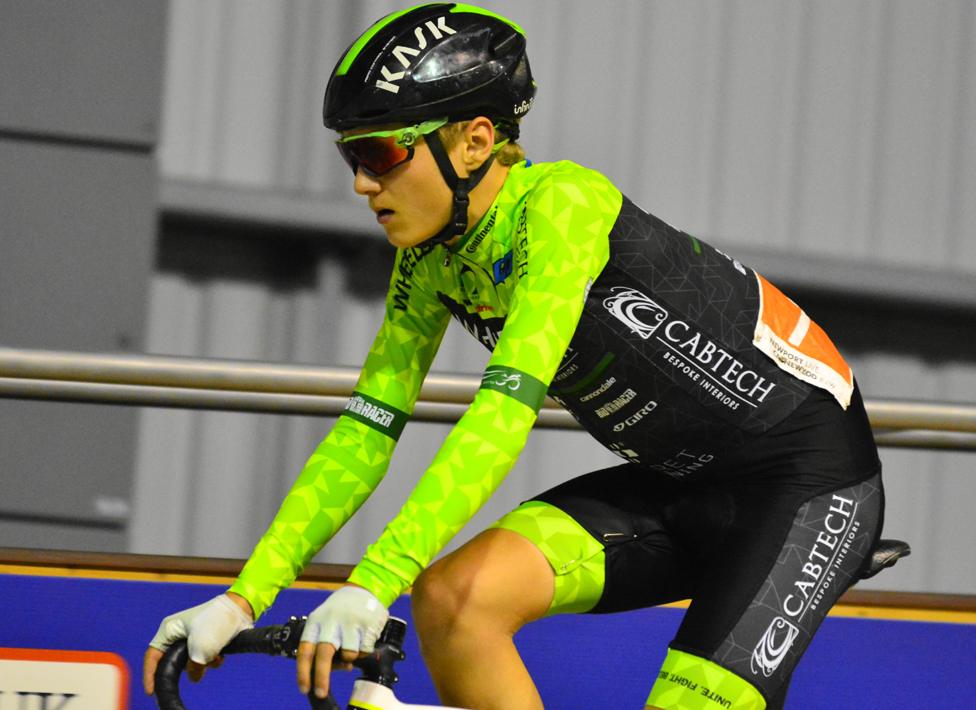
Oscar Mingay, pictured when he was at his unhealthy weight
The teenager has continued to ride throughout his recovery with the support of Welsh Cycling and Sport Wales.
He is now working with nutritionists, psychologists and physiologists, who he says he can't really "thank enough".
"I wouldn't get the support from anywhere else," he added.
The former junior rider stopped short of describing body image as an obsession but said young riders often could not go five minutes without mentioning it.
"I thought I'm getting really lean...this is what pros look like but in fact I was looking through photos the other day and I just look like a 12-year-old kid, really emaciated".
He added he knew of other young cyclists living with eating disorders, who had been dropped by their teams.
'Still growing'
Anne Adams-King, chief executive of Welsh Cycling, said body image was bigger than cycling, or any sport.
"This is about being athlete-centred. The medals come second for us."
She added: "It's really good that Oscar has come forward as it will make people think about whether or not there's anyone else who has had similar problems and how we deal with those".
Ms Adams-King said she did not think body issue problems were endemic in the sport, and the organisation was focusing on educating both athletes and coaches.
"We have to remember these are youngsters coming through and their body - and they're still growing - is totally different from an adult," she added.
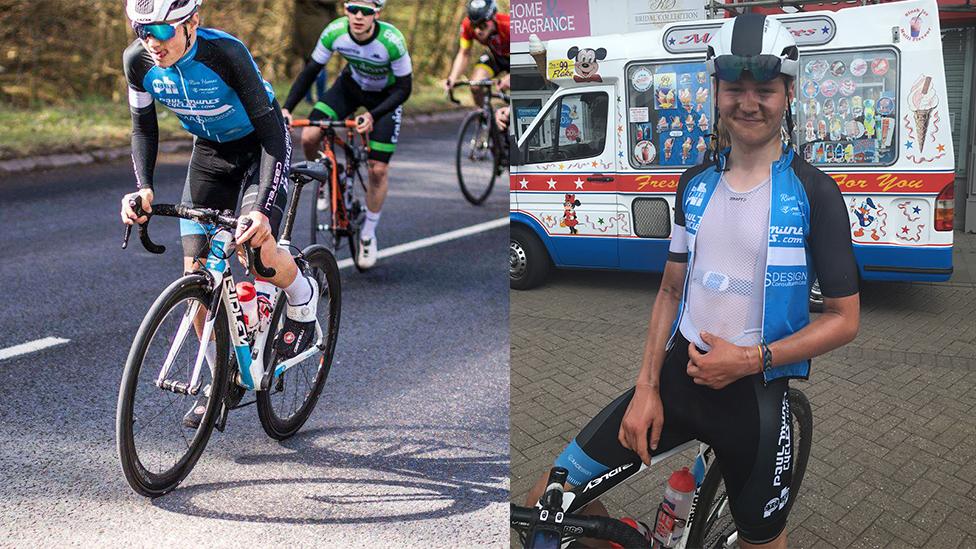
Oscar is now back at a healthy weight
Dr Nicky Keay, a doctor specialising in sports and dance endocrinology, has been working with Oscar during his recovery.
The British Association of Sports and Exercise Medicine member, who has recently published a study looking at low energy availability in male road cyclists, said aspiring amateurs can be more at risk of a developing a problem.
"They see the images of Chris Froome, and Geraint Thomas winning the Tour and they look, let's be frank, very, very lean," she said.
"You think that's how you should look if you're a male cyclist."
Dr Keay said often those images or speculation about what professionals eat could be taken out of context.
"What you hear, what you see in a cycling magazine, it doesn't give you the whole training plan, the nutrition plan," she said.
Oscar would like to make it on a world tour one day but is also focused on helping others in a similar situation.
He said he wanted to encourage more young men to talk openly and honestly about eating disorders.
"He's who's happiest wins at the end of the day," he added.
You can find information and support on eating disorders here.
- Published23 April 2019
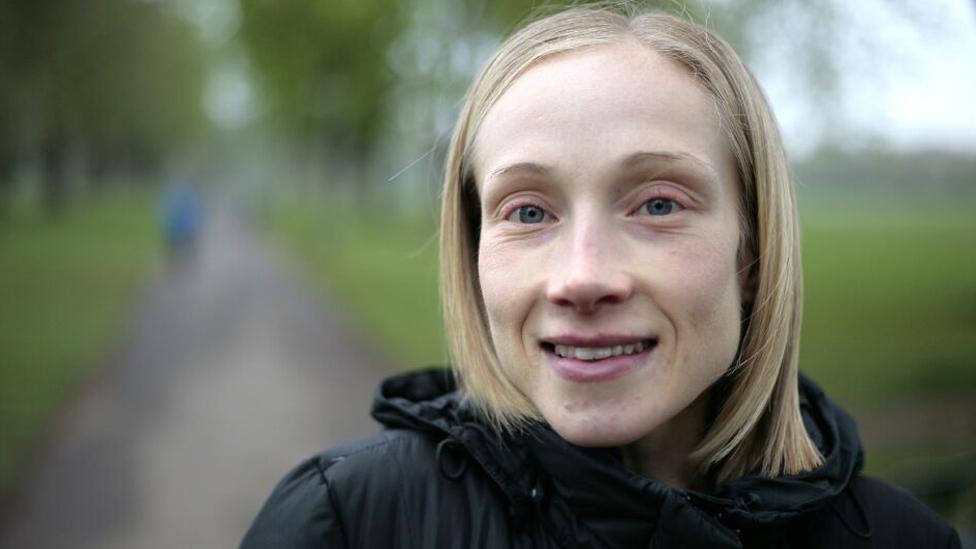
- Attribution
- Published10 December 2018
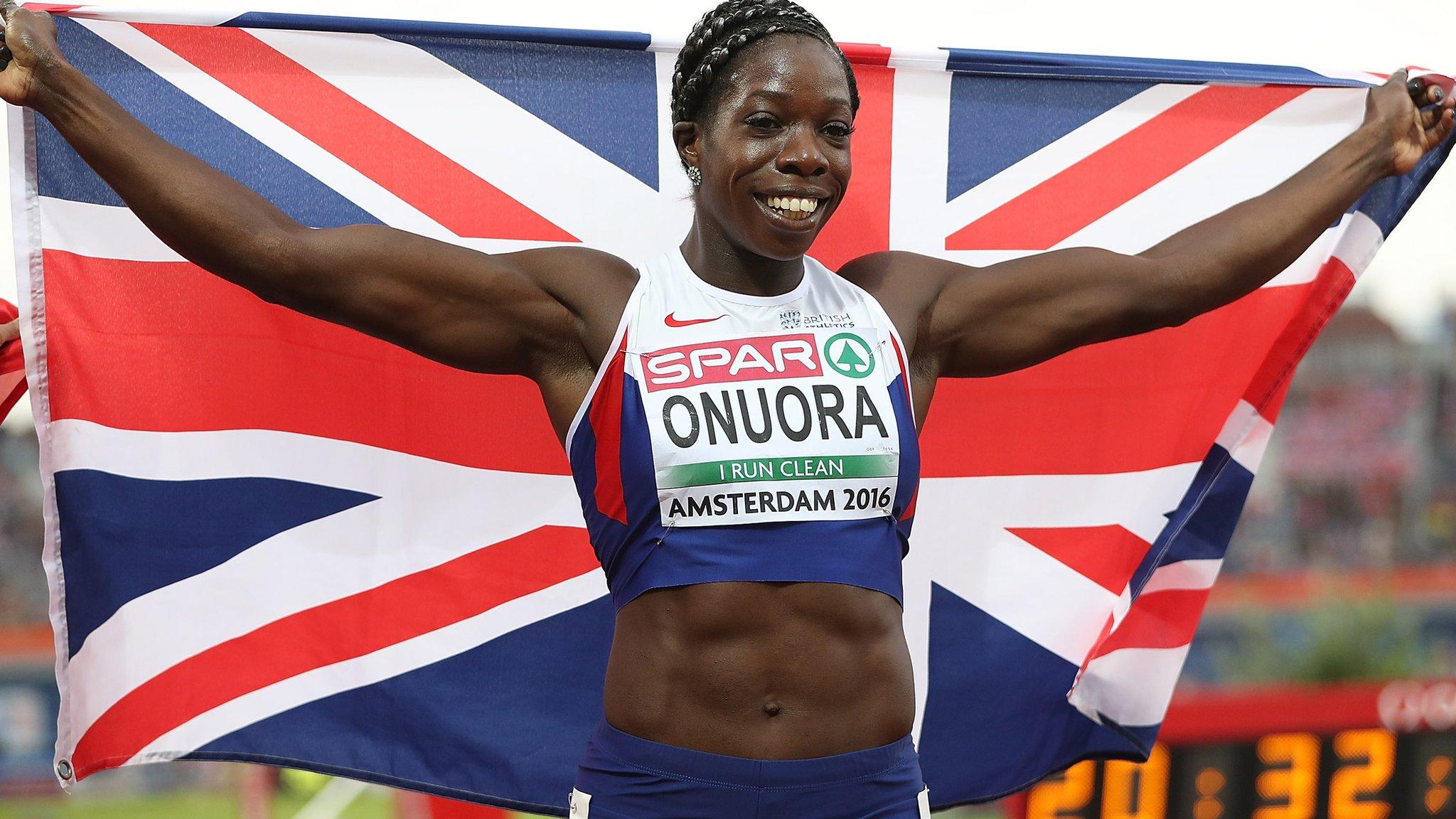
- Published9 December 2018
